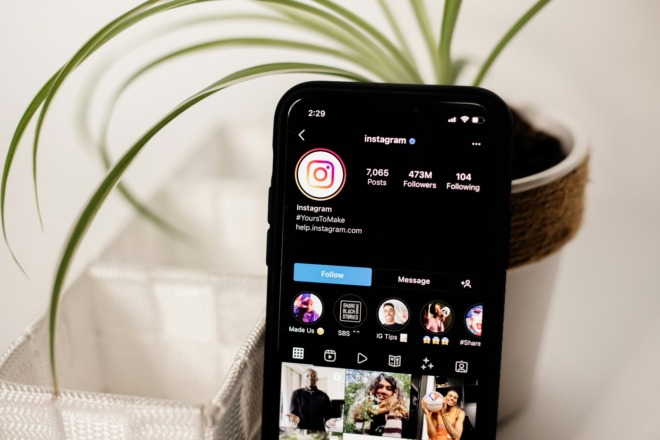Email is a communication tool many internet users rely on daily. However, people don’t usually consider it a very private way of interacting with others. Even if they don’t sign their names in a message, most email providers encourage or require adding a name to the account when someone sets it up. So, even without a moniker in the signature, one will probably appear in the sender field. Can someone even send an anonymous email these days? Yes. Here are some options.
Create an Account Without Real or Identifying Information
The first — and perhaps most accessible for the majority of people — option is to make an account with a well-known email service provider and fill out all the required fields without accurate information or details to identify the sender. For example, the account might have the first name of “help” and the last name of “desk” if the goal is to provide technical support to customers.
As people set up accounts like this, many email providers will eventually require them to provide real information. It’s often a phone number or secondary email address to verify the newly created account. Those particularly committed to anonymity might take it as far as they can, such as by using an app that generates temporary phone numbers.
This approach can become tricky, though, and people could still find there’s no way to stay wholly anonymous. For example, if they must use a phone number-generating app, the company behind it will likely require some identifying details. Many such offerings are fee-based, so then the credit card or other payment method will ultimately have a name linked to it.
Use an Alias Generator
Many credit card companies provide people with virtual card numbers they can use for single transactions. If hackers get the virtual card number, it’s useless because the details only work in one instance. Email alias generators are similar. They conceal a person’s real contact details and give other versions to use without identifying information.
Interested people can try specialized services, such as SimpleLogin. However, they may be surprised to find products they already have offer aliases. For example, being an Apple user who subscribes to iCloud+ allows people to send anonymous emails with the aptly named Hide My Email feature.
Some alias generators limit the number of anonymous email addresses a person can create. In that case, the easiest thing to do is think strategically about how to use them. Someone might use one solely for food delivery orders and another for all online shopping. Guerilla Mail is a free service that gives people disposable emails that work for just an hour.
Another option is to limit how many times to use an email alias. A handy feature of Apple’s Hide My Email is the ability to add notes about usage frequency or anything else that helps people differentiate between the emails they create. Apple does not restrict how many emails someone can make this way, so keeping them organized is a smart idea for modern internet users.
Try DuckDuckGo’s Forwarding Service
People interested in sending anonymous emails often prioritize privacy in other parts of their internet usage, such as browsing the web. That’s probably a major reason why privacy-centric web browser DuckDuckGo began offering a free mail-forwarding service to all users in 2022.
It goes beyond anonymous email and removes trackers, too. The company’s beta test for its email protection found about 85% of users’ emails had tracking mechanisms in them. These allow companies to collect specific metrics, such as whether recipients ignore or open emails. Marketers can also use customers’ emails to show them customized advertising across sites such as Facebook.
That facet of email marketing is certainly a valuable part of company outreach efforts. However, some people get annoyed at how much business representatives can learn about them through nothing more than their emails.
DuckDuckGo’s service also allows creating a personal anonymous email address and unlimited others to rely on for whatever they do online. Plus, people can deactivate email addresses at any time, such as after noticing companies beginning to spam them.
Get an Anonymous Email From a Privacy-Conscious Provider
People have a wide variety of companies to consider when setting up new email accounts. Existing businesses must evolve to stay competitive as new ones arrive on the market. That often means providing people with privacy-centric options, including anonymous email inboxes.
As interested individuals browse what’s on the market, they must realize what constitutes an anonymous email is not as straightforward as they might have thought. For example, the first method we covered here eliminates personally identifying information (PII). However, people can still see the sender’s IP address this way. The exception is if someone creates an email address without real information and also only uses it through a VPN.
Private-Mail and Tuta are a couple of providers specializing in anonymous email services. People should always get the specifics before choosing one. Even if a company shields a sender’s details, that doesn’t necessarily mean someone can stay anonymous throughout the use cycle.
Why Do People Want Anonymous Email Addresses?
Anonymous email services fill a relatively small part of the overall market, but people have many more ways to try them now than they once did. What’s the main advantage of using them? Individuals have various reasons. However, many merely decide they want more control over what marketers know about them and how they use that information.
Consider a 2023 study, which found only 14% of Americans thought companies would stay mindful of their best interests when using their data. That’s not surprising. Even when businesses specify data collection purposes, the explanations are often so full of legal language that the average person can’t understand them.
Some people also find it overwhelming when marketers bombard them with emails. Such messages can become especially grating when people receive more than one per day, perhaps during a limited-time sale.
It’s understandable that marketing teams want and need to get people interested and encourage them to take desirable actions. However, moderation is key. Seeing emails from particular companies too frequently may cause people to unsubscribe from the mailing lists. Some individuals also realize they want to cut down on the marketing messages they see. That’s often when one of their goals is to reduce overall consumption.
Having an anonymous email for a particular purpose can also help people stay focused. Someone might create an account just for newsletters. They can then access it whenever they have a few minutes to spare and won’t have to scroll through other content to find the content they want.
Finally, identity theft victims often want to be especially cautious to prevent repeat privacy violations. Setting up an anonymous email is one way to do that, and it’s an option to consider along with other safeguards.
Does It Make Sense to Use an Anonymous Email Account?
There’s no universal answer about whether someone should use an anonymous email tool or provider. People should make that consideration on a case-by-case basis and think about the likelihood of the recipient needing to reply to an email sent that way.
For example, using a disposable email on job applications or when ordering products is not the best idea. Doing so would mean hiring managers and retailers can’t get in touch to ask for or provide more details.
However, an anonymous email could help you maintain privacy when engaging with people you don’t know well. It’s also wise to use one if you have insider information to bring to light and fear potential retaliation.
Today’s world is data-driven, and many people provide their emails without thinking about it. That decision isn’t necessarily bad, and it doesn’t guarantee future privacy problems. However, since anonymous email services are widely available — and sometimes free — individuals should strongly consider using them for well-defined purposes.


